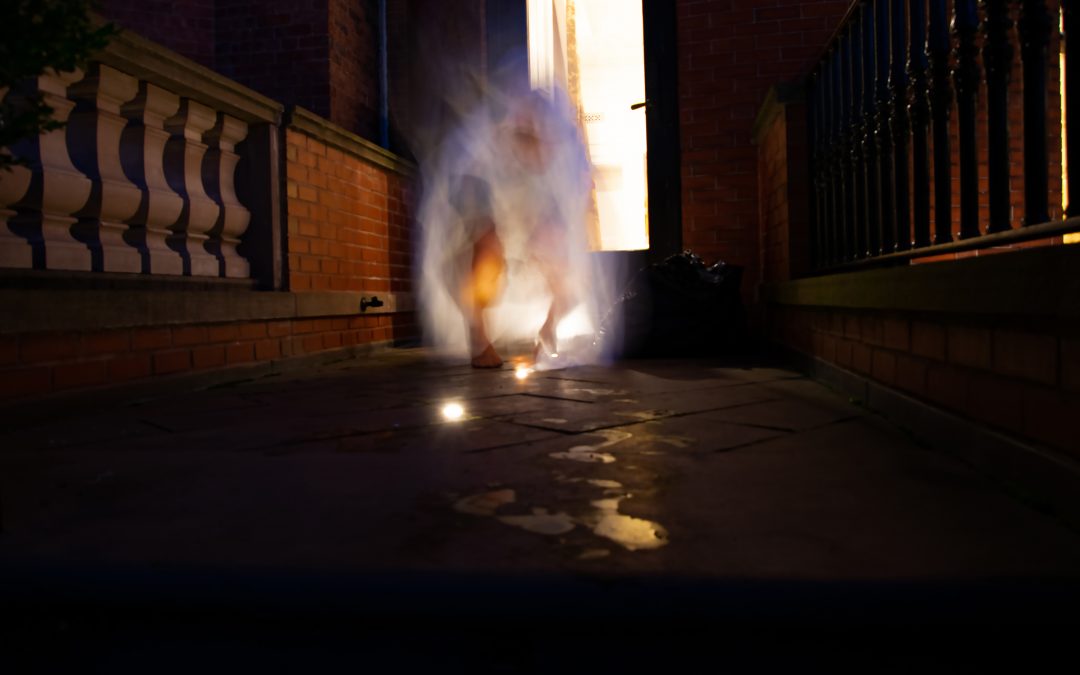
Mar 1, 2021
Fifty-six Milton students received recognition in the 2021 Massachusetts Scholastic Art & Writing Awards. The students earned 124 Gold Key, Silver Key, or Honorable Mention accolades in the competition. The Scholastic Art & Writing Awards began in 1923 and are considered the most prestigious awards for teenagers in the country. Milton’s 31 Gold Key pieces are submitted to the national Scholastic competition, and results for the national contest will be announced in March.
Anne Kwok ‘21 earned six Gold Keys, one Silver Key, and two Honorable Mentions for her poetry. One of her poems that earned a Gold Key is entitled “After Warfare.”
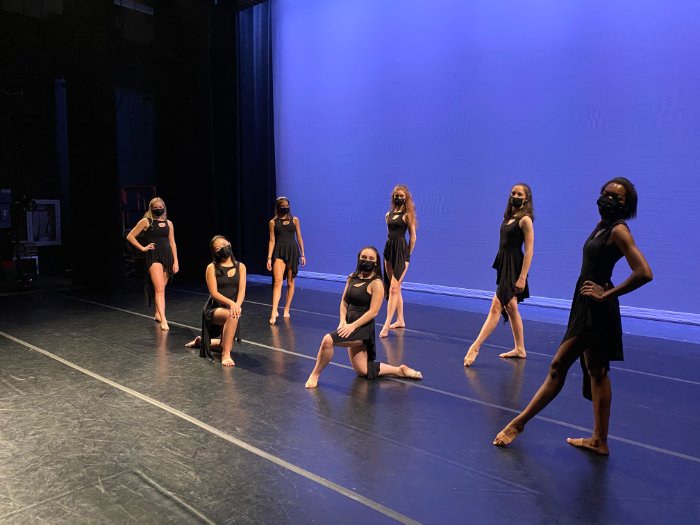
Feb 23, 2021
With themes of isolation and loss but also humor and celebration, this spring’s Dance Concert explores life’s extremes. Last spring, Dance Concert was the last major event on campus before Milton had to shut down due to the pandemic. This year, the event is fully virtual with more than 40 student dancers who will perform 15 dances choreographed by students.
“It’s a smaller show, but feels like a bigger undertaking because of the way we are producing it,” says Kelli Edwards, Performing Arts Department chair.
The performance showcases modern dance, ballet, Latin dance, and an Irish dance. All the dances are being filmed—some in person on the King Theatre stage, some in more of a dance film format, and others in a Zoom format with dancers individually in their spaces. Edwards says the student choreographers have “embraced the format and are utilizing all the ways they can film.”
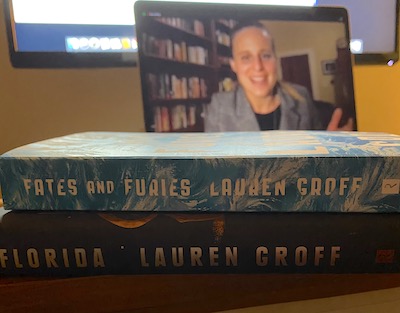
Feb 19, 2021
Writing fiction cannot replace activism, but it can shine a light on problems that demand action, author Lauren Groff told students Wednesday.
Paraphrasing the poet William Carlos Williams, Groff noted that although literature cannot save lives, it is still crucial to humanity: “Poetry has never saved a life, but men die every day for lack of it,” she said.
“I do believe that fiction can make one slowly turn one’s eyes to the things that matter,” Groff told students during a virtual reading and Q&A. “And it has, since the inception of fiction as an art form. There is a lot of social progress that has happened because fiction writers have written about what’s important.”
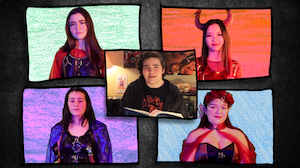
Feb 16, 2021
In this year’s winter play, She Kills Monsters: Virtual Realms, sisters Agnes and Tilly couldn’t be more different. Agnes delights in fitting in and being an “average” high school girl, while Tilly, a Dungeons and Dragons aficionado with a wild imagination, can’t help but stand out.
When Tilly, played by Talia Sherman ’22, suddenly dies, Agnes, played by Lucy Hirschfeld ’21, finds herself on a quest through the D&D world, following a module Tilly created and hoping to connect with her sister. As Agnes meets her sister and a band of interesting adventurers in the fantasy world, a series of funny and dramatic events unfolds.
“I came into the show knowing very little about D&D, and throughout my time filming, I followed Agnes’ journey by gradually learning more about the game, and then becoming part of the D&D world,” Hirschfeld said. “Throughout the game, she finds herself and builds friendships she would never have expected.”
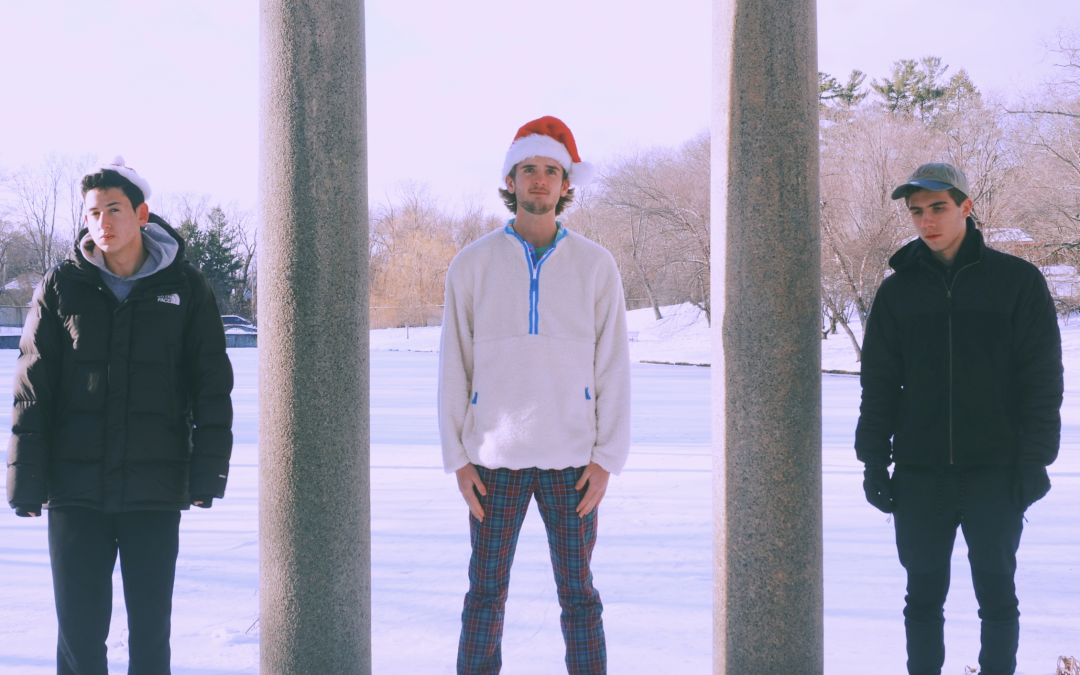
Feb 11, 2021
Three students casually singing together their freshman year have turned into an established trio with more than 43,000 subscribers on their YouTube channel. Henry Wilde ’21 and Conner Hartman ’21 became friends in freshman math class and they often discussed their common interest in music. Although Wilde and Hartman did not consider themselves singers, both knew Dash Evett ’21 was one, and the three decided to perform together at that spring’s Beatnik, an open mic event run by students.
At the beginning, they focused on singing covers. “After our first Beatnik, we basically would meet during all our free periods, singing in a room in Kellner,” said Wilde. “Over time, we developed a style. We would spend about two months arranging a song, improvising on it.”
When the pandemic forced everyone to quarantine in their homes, the trio decided to start a YouTube channel as a way for friends and family to hear their music. Hartman says when he loaded up the first video, a cover of “The Misty Mountains Cold” from The Hobbit movie, he typed in their group name as misty., all lowercase with a period at the end, and their official name was born. The video was recorded in a tunnel, which amplified their acoustic voices. Viewership took off after that.
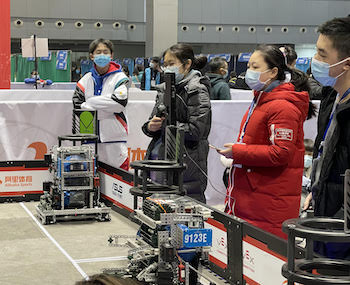
Feb 9, 2021
In a typical year for the Robotics Team, members spend long hours in the robotics lab together, building and rebuilding their robots to get ready for tournaments. This school year, much of that work has gone virtual.
Although the pandemic restrictions on in-person building and competition have been challenging, the season—filled with virtual skills events and international tournaments—has demonstrated what makes robotics special: thinking creatively, developing solutions, and working together.
“At the beginning of the season, we were not sure that we would even be able to build robots,” said Puck Doboe ’22. “However, several students have been able to find space in their homes to work on their robots remotely, which has been fantastic. Even with the distance from Milton, a new student joined a returning student to build a fully functional robot together while doing Zoom classes from their homes in China.”
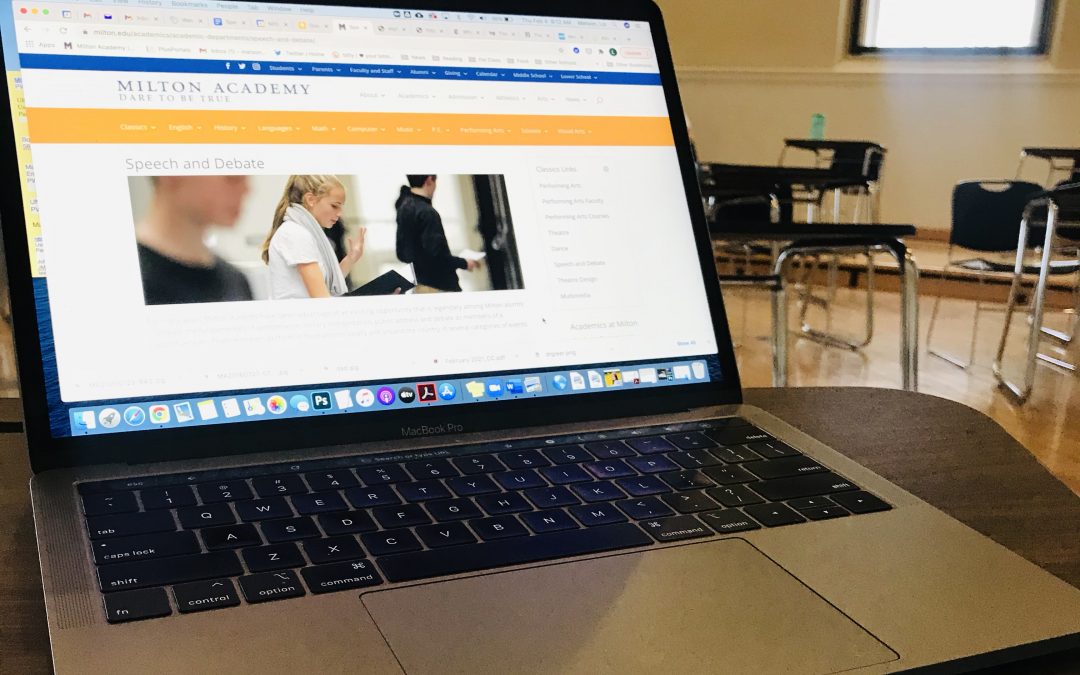
Feb 4, 2021
It’s been an unusual but successful year so far for the Speech and Debate Team. They kicked off 2021 competing at the Massachusetts Speech and Debate League’s Happy New Year Tournament, earning several first-place honors in all three divisions of debate as well as numerous speech categories. With all the tournaments held online, students have had to adapt and shift their approach leading to both opportunities and challenges.
Jack Burton’s ’22 primary event is Humorous Interpretation (HI), but he also competes in Duo Interpretation and Dramatic Interpretation. He says the virtual format, especially for interpretive pieces, changes the way the competitor interacts with the audience.
“Bridging a connection with your audience is an essential part of speech,” says Burton. “Without the ability to make eye contact with and elicit live laughter from judges and competitors in the room, speech pieces definitely lose a sense of magic, and it is harder for us performers to engage the audience.”
But Burton, who earned third place at the Yale Invitational, second place at the Duke Invitational, and first place at the Princeton Invitational, says competing online also offers an opportunity to get creative with the camera.
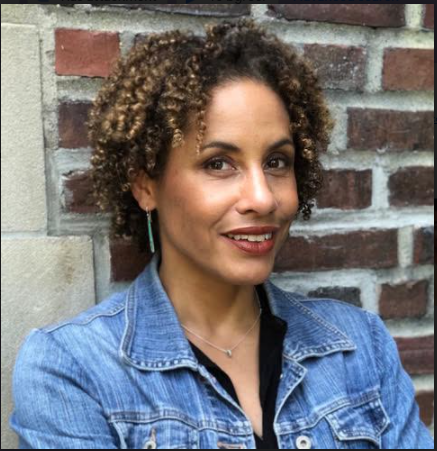
Feb 1, 2021
Historian Brenna Wynn Greer spoke about “the perils of symbolic Blackness” and how popular Civil Rights history focuses simplistically on the nonviolent version of Martin Luther King, Jr., rather than the complexities of who he was as a person and an activist. Greer, an associate professor of history at Wellesley College, was this year’s MLK Jr. Day speaker.
Greer said the symbolic King is seen as a kind and gentle Black activist and that, “as a nation, we remain heavily invested in this symbolic King. This is a problem because symbolic King encourages simple and sanitized histories of the Black freedom struggle.”
During the few years before he was assassinated, “King’s criticism of capitalism and his opposition to the Vietnam War made him unpopular not only among U.S. officials but also among Civil Rights activists. This King was a troublemaker, so he was sidelined increasingly as an activist and he was pushed into the shadows as a historical figure,” said Greer.
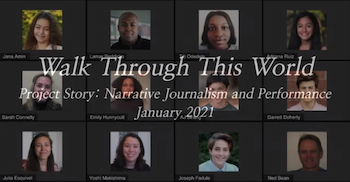
Jan 29, 2021
Our stories connect us and make us unique, students performing Walk Through This World demonstrated this week. Telling the personal stories of Milton community members, the Project Story performers made connections among the School’s students, faculty, and staff.
Storytelling is especially important right now as people remain distant during the COVID-19 pandemic, said English faculty member Hannah Pulit ’07, who with Performing Arts faculty member Peter Parisi teaches the Project Story: Narrative Journalism and Performance course.
“At a time when many of us are feeling isolated and disconnected, we particularly appreciate the affirmation that stories matter, that they remind us of our shared humanity, and that, though we may feel lonely in our struggles, we are never truly alone,” Pulit said to close the performance.
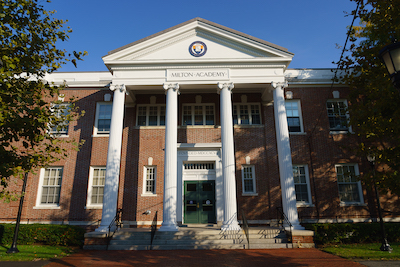
Jan 25, 2021
Senior projects are a Milton tradition providing graduating Class I students with an opportunity to take a deep dive into a topic that interests them, whether they’re serving the community, exploring a favorite class subject further, learning a new skill, shadowing a professional, or creating art.
Planning for the project period—the month of May through the first days of June—has encountered some obstacles during the COVID-19 pandemic, however, leading to an expansion of project offerings, said Academic Dean Heather Sugrue.
“We wanted to provide some more options and build something that would assume our current pandemic restrictions remain in place,” she said. “So that means that we can’t plan for students having internships or working off-campus. We needed to give some more options.”
The new offerings this year include the choice of more than a dozen seminars coordinated by adults in the Milton community. Topics include creative writing, animation, designing educational games, the historical archeology of Milton, justice and law in the movies, geology, cooking, Latin epigraphy, prize fiction of 2020, race and the war on drugs, military history, the future of schools, and more.

Jan 21, 2021
Three Milton students, Jana Amin ’21, Will Bourell ’23, and Elliot Smith ’22, joined 12 of their peers across the country in creating and producing UnTextbooked, a podcast exploring the real effects of history now and in the future.
“We created UnTextbooked to help address the incomplete narrative found in many history textbooks and to find answers to big questions,” Smith said. “Each of the 15 episodes features one teen podcaster, one book, and one famous historian.”
Smith’s episode, “How a Black teenager and his young lawyer changed the criminal justice system,” features an interview with the historian Matthew Van Meter, author of Deep Delta Justice: A Black Teen, His Lawyer, and Their Groundbreaking Battle for Civil Rights in the South. Van Meter’s book chronicles the wrongful 1966 arrest of Gary Duncan in Plaquemines, Louisiana and the era’s Civil Rights battles; Duncan’s case, argued by attorney Richard Sobol, reached the U.S. Supreme Court, which ruled that states must honor requests for jury trials by defendants in criminal cases.

Jan 19, 2021
From the violent attack on the United States Capitol to this week’s Inauguration Day, historical moments are unfolding in real time, giving history teachers and their students opportunities to examine current events through a historical lens.
“It’s essential we address January 6th. Our U.S. History classes are a place where one can grapple with the nuance of the Constitution and the ethics of a democracy,” says Matt Blanton, history faculty member. “The challenge is the events unfolding are a moving target—what was previously understood could be different—it requires being nimble. This is a good time to reiterate the best practices of critical thinking.”
In response to the events at the U.S. Capitol, the student History Club held a virtual panel last Thursday evening. Five teachers answered questions submitted by students and Jonathan Cao ’21 and Alex Wang ’21 moderated. Questions included whether the U.S. has ever been culturally unified and if there ever was a time in history where America was “great.” One student was curious about what connections police institutions have to white nationalist organizations and the origins of those connections. Another student asked whether there are similarities between today’s American society and periods in the past such as pre-WWII Germany.
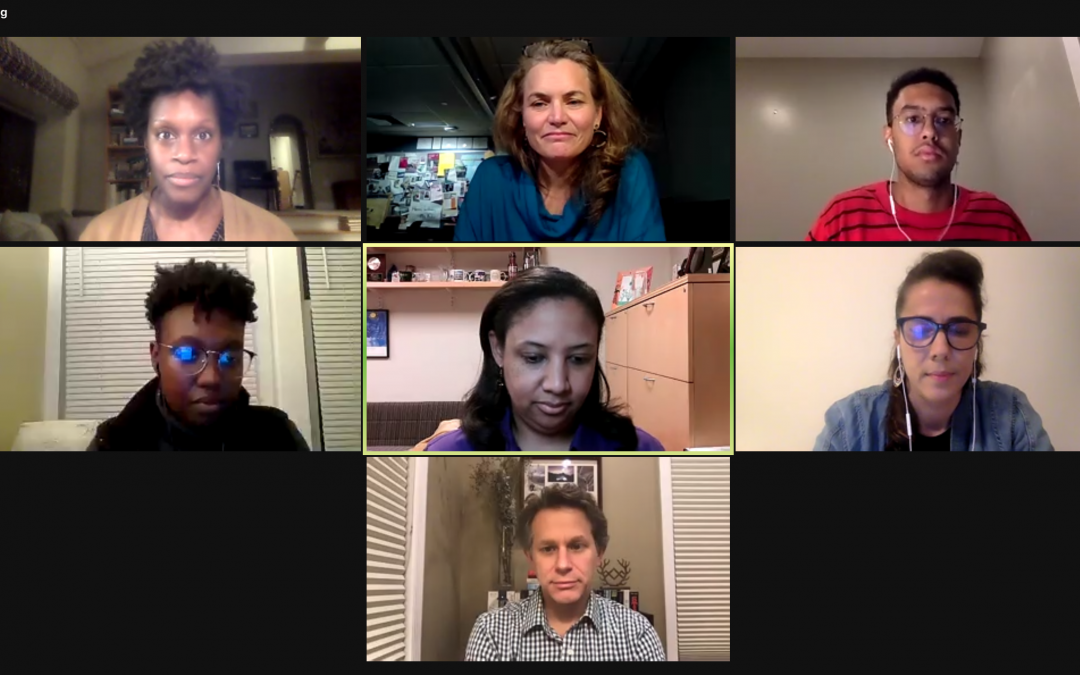
Jan 15, 2021
Humanities disciplines like the arts, history, languages, and social sciences can help make the consequences of the global climate crisis more accessible and urgent for people, said anthropologist and University of Massachusetts-Boston professor Rosalyn Negrón.
“One of the challenges we face is that climate action is highly politicized,” she said. “The polarization is a complex problem that doesn’t have easy solutions, but there is a place for the humanities because there are ways in which the arts, film, creative writing, music, and other things people share that can be avenues for communicating about these issues and taking them out of the political domain.”
Negrón was one of four panelists Wednesday who virtually visited about 150 students from Milton and other area schools to discuss climate change and climate justice, this year’s theme for the Humanities Workshop. She was joined by David Abel, a documentary filmmaker and environmental journalist for the Boston Globe; Zoe Davis, coordinator of the Climate Resilience Project through the City of Boston; and Kristala Jones Prather P’22 ’26, the Arthur D. Little professor of chemical engineering at MIT. Edward Moreta ’18, a Kenyon College student and poet, moderated the panel.
Jan 7, 2021
Yesterday, our nation watched in horror as a violent mob of rioters attacked the United States Capitol in Washington, D.C. I know that I am not alone in my feelings of fear, outrage, and sadness over the criminal acts that unfolded as Congress met to carry out its fundamental role in the peaceful transition of presidential leadership. I offer my support as we try to heal individually and as a Milton community.
The attack on the Capitol was an assault on our democracy, fueled by false claims—an interruption of and attempt to invalidate a free and fair election. Rioters carried and wore symbols of hate. These actions are directly opposed to our values as a School: treasuring respect for one another, celebrating differences, and teaching students to be critical thinkers, seekers of truth, and advocates for justice. Yesterday’s mob represented nothing that we wish our students to emulate or even tolerate.
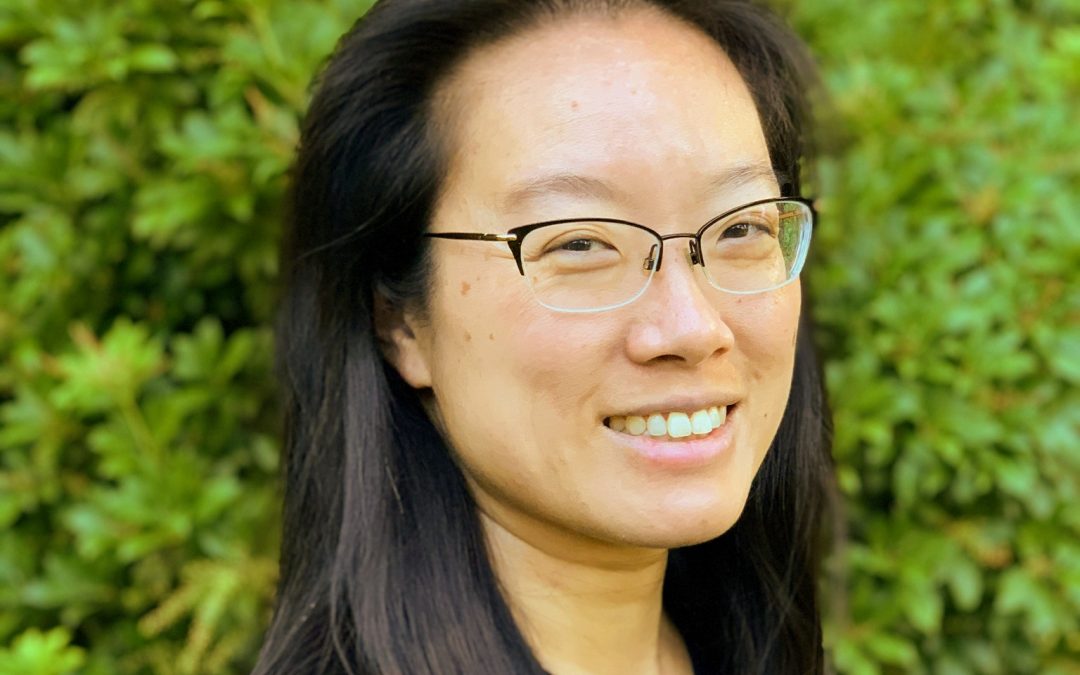
Jan 5, 2021
New Math Department Chair LeeAnn Brash joined Milton, along with three other new math teachers, just before the start of this school year. Although it’s been an atypical year, she has spent the fall teaching Honors Calculus and Geometry and getting to know students and fellow faculty members.
How have your first few months at Milton been?
Very good. There are a million things happening with the COVID-19 pandemic that normally wouldn’t be part of the picture, but all things considered, it’s been really great. The Math Department has been incredibly welcoming and supportive, and I’ve had really good support so far from the other department chairs that I’ve met. There are four of us new to the department this year (Brash, Akinade Adeboye, Cory Bhowmik, and Hubert Hwang) and we’re all people of color, which is really cool.
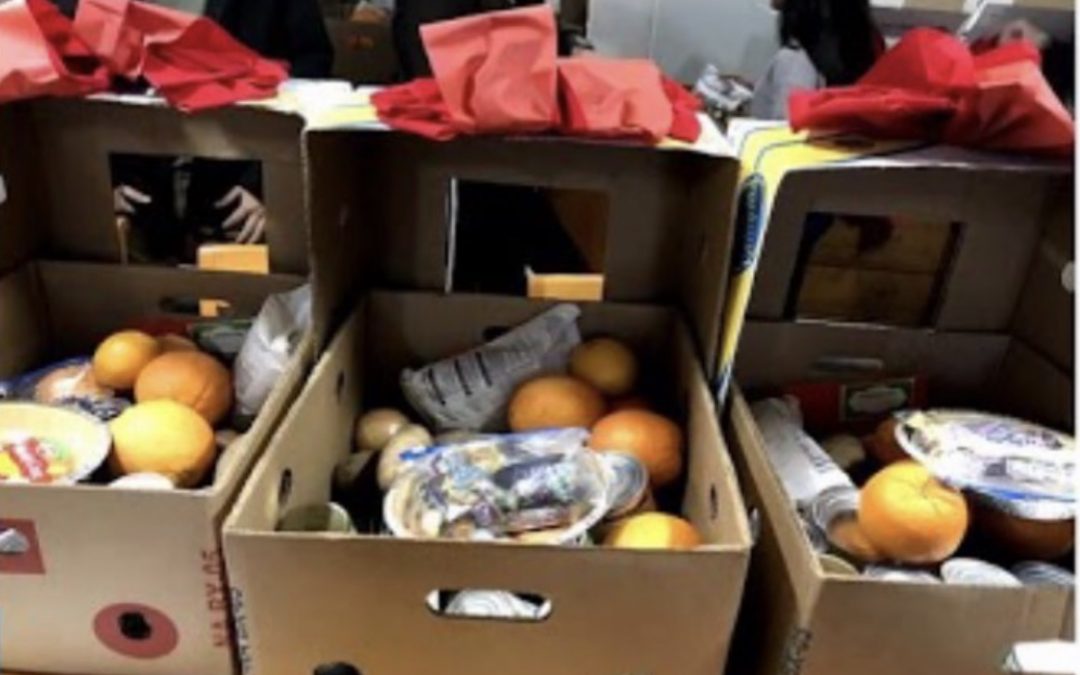
Dec 15, 2020
Community Engagement Programs and Partnerships (CEPP) focused on projects aimed at helping others, involving students, staff, and faculty. Although in-person service activities aren’t happening right now, CEPP organizers have found ways to make sure the Milton community can give back. During Hunger Awareness Week in November, for example, student CEPP board members hosted an all-school Zoom session to educate students about food insecurity.
This month, CEPP hosted a gift drive to fulfill the wishes of 50 families supported by the Department of Children and Families, as well as area homeless families through Milton’s partners in the Boston Public Schools. Many student advisory groups together purchased gifts for those in need. In addition, CEPP also collected money for food baskets, which will provide a turkey dinner for 30 families.

Dec 7, 2020
Dorm faculty and students are finding creative ways to maintain dorm traditions during this period of remote and hybrid learning. In Goodwin House, they’ve continued to celebrate each student’s birthday. However, instead of singing collectively over Zoom, one student plays a musical instrument rendition of “Happy Birthday” to share. So far, there have been oboe, violin, and beatboxing performances. In the most recent one, English faculty member Elaine Apthorp played her guitar and sang.
Each Goodwin advisory group plans and hosts a virtual event for the rest of the dorm to join. House Head and math faculty member Patrick Owens said his advisory group hosted a Jackbox game called Fibbage. Last week, science faculty member Michael Edgar’s advisory group hosted an “Among Us” tournament (see photo). “Among Us” is an online multiplayer social deduction game.
Owens said care packages were sent to all Goodwin students earlier in October, and in all the houses, a new student mentoring program was launched at the beginning of the school year. Returning students who were interested in serving as mentors applied and were then paired with new students. Mentors and mentees were also placed in the same dorm families who will meet over the course of the year.
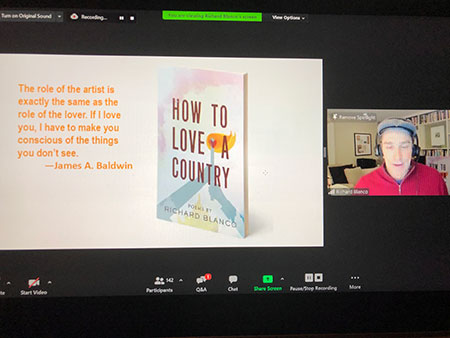
Dec 3, 2020
A poem isn’t really done until it’s shared and lives in someone else,” said Bingham Visiting Writer Richard Blanco. Sharing his work that centers on ideas of home, identity, and nationality, Blanco read and discussed his poetry with students on a Zoom webinar.
“What is home? This idea grew bigger into what is a country? In my poems, I’m asking these questions for all of us,” said Blanco.
Blanco immigrated to Miami as a child with his Cuban-exile parents and said that when he was growing up he wasn’t sure if he was part of the American story. It wasn’t until he was asked to be the poet for President Obama’s second inauguration that he felt his personal story was part of the American narrative.
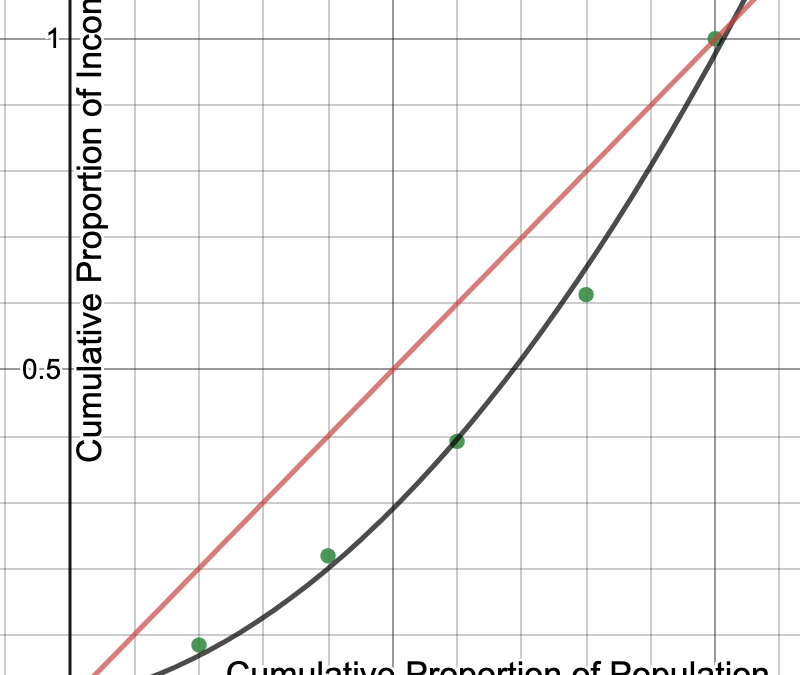
Nov 13, 2020
Writing about math is an approach used by Milton math teachers to get students to dive deep into the material and then articulate it—beyond just numbers, formulas, and graphs. Earlier this semester, Honors Calculus students researched, calculated, and wrote about the Gini Index, a measure of income distribution across a population, for a country of their choice.
“We wanted to make the study of calculus relevant, and income distribution and income inequality are topics we read about all the time in the news,” said math faculty member Jackie Bonenfant. “This was a way to allow students to explore an important and pressing topic, while also encouraging them to ask questions about their world. What government policies, practices, and laws might impact income distribution? Are we satisfied with current levels of income distribution and, if not, what could we do to change things?”
Students chose countries like the U.S., Italy, Australia, Vietnam, Greece, Brazil, Mexico, and India. Zoe Malouf ’21 researched the 2017 Gini Index for Switzerland.
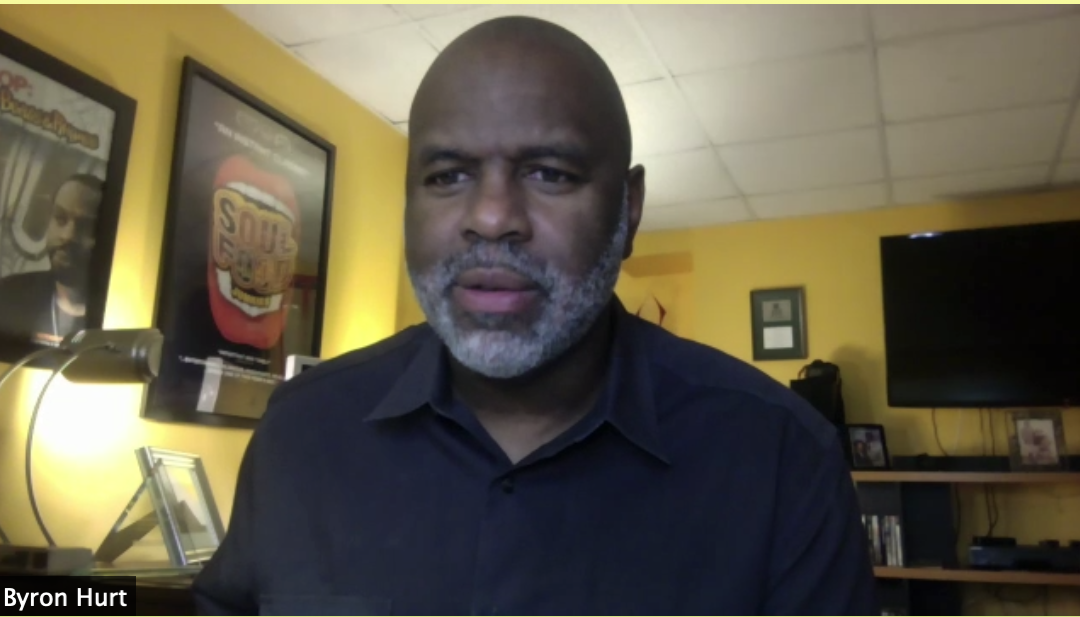
Nov 12, 2020
Many boys in our society are conditioned from a young age to be tough, to hide their emotions, and to avoid any appearance of behaving “like a girl,” documentary filmmaker and anti-sexist activist Byron Hurt told student-athletes recently.
This mindset favors aggression, prevents boys from connecting with their emotions, and undervalues girls and women, sometimes leading to toxic masculinity and violence, said Hurt, who visited Milton athletes virtually as part of a series of speakers this fall who promote mental fitness.
“I grew up in a culture where you had to perform a certain kind of manhood and masculinity in order to be accepted by other guys and be seen as a ‘real man’” said Hurt. When boys and men feel like they can’t be vulnerable with their emotions, those emotions can be redirected in unhealthy ways: abuse, depression, violence, failed relationships, and out-of-control actions.
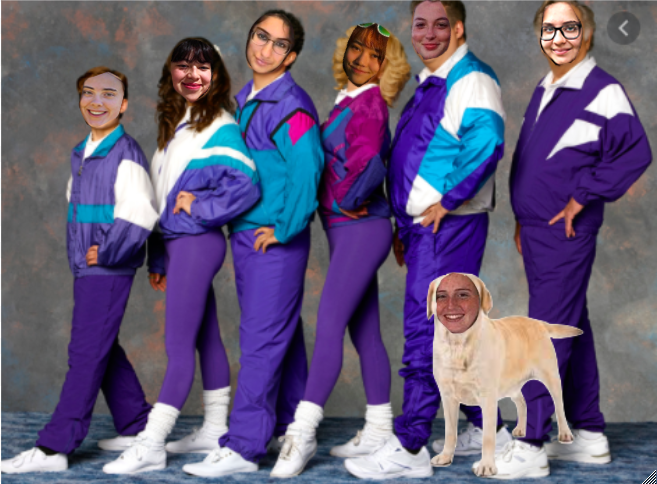
Nov 11, 2020
House heads and faculty are engaging their dorm communities in both synchronous and asynchronous ways as boarding students learn remotely during this phase of hybrid learning. In Robbins House, dorm faculty hold weekly drop-in sessions at various times to accommodate time zones. They are also hosting events such as Zoom Jeopardy! games or Netflix watch parties.
In September, each new student was paired with a returning student in their grade or the grade above. Then these pairs meet others over Zoom to increase their network of support in the dorm community.
“It has gone so well in Robbins that almost all of the mentors and mentees have made it a weekly occurrence to have a get-together and hang out virtually over the weekend,” said house head Nicole Hall.

Nov 6, 2020
Milton students in several humanities classes will join those from six other Massachusetts schools in studying climate change and climate justice through the humanities during this year’s Humanities Workshop.
Teachers from the participating schools decided to focus on climate issues because they permeate many different aspects of life, including economic and racial inequality, human migration, and public health.
“There is a sense that climate change is just a science problem, which of course is not the case—it’s a human problem,” said Milton faculty member Alisa Braithwaite. “If our climate dies, so do we. We wanted to bring the concepts of humanities disciplines together to create a narrative that helps people to see that climate change is an urgent, human problem, one that we should be learning about and fighting for from every corner of our world.”
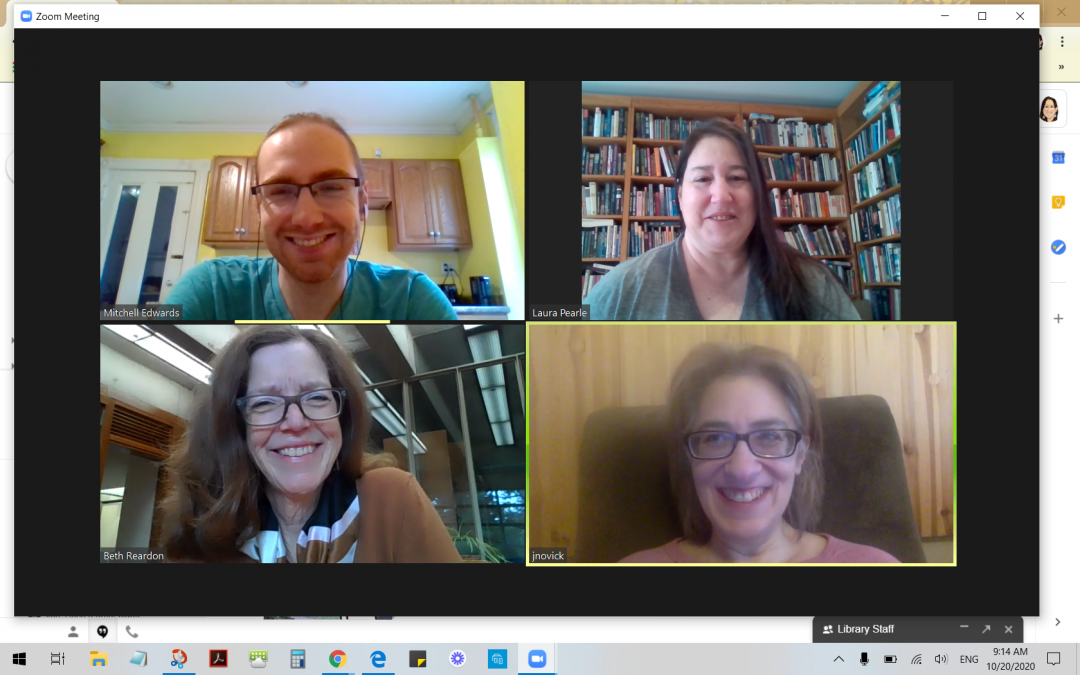
Nov 5, 2020
Typically a busy hub for study and research, Cox Library needed a plan to serve the community through this year’s remote and hybrid learning plans. Milton’s librarians went to work finding creative ways to operate.
When Milton first went remote last spring, it “coincided with the start of the history department’s ‘research season,’” said Laura Pearle, director of the library. “We created a portal that included a chat box so students looking for library assistance could talk with a librarian from 5:30 a.m. to 9 p.m. Students from all over the U.S., China, and Europe contacted us for help with citations, using the databases, and general help on various topics.”
The library purchased access to a database of more than 200,000 ebooks to help students do their research since the print collection was unavailable. They also extended outreach to the community via quizzes and social media postings.
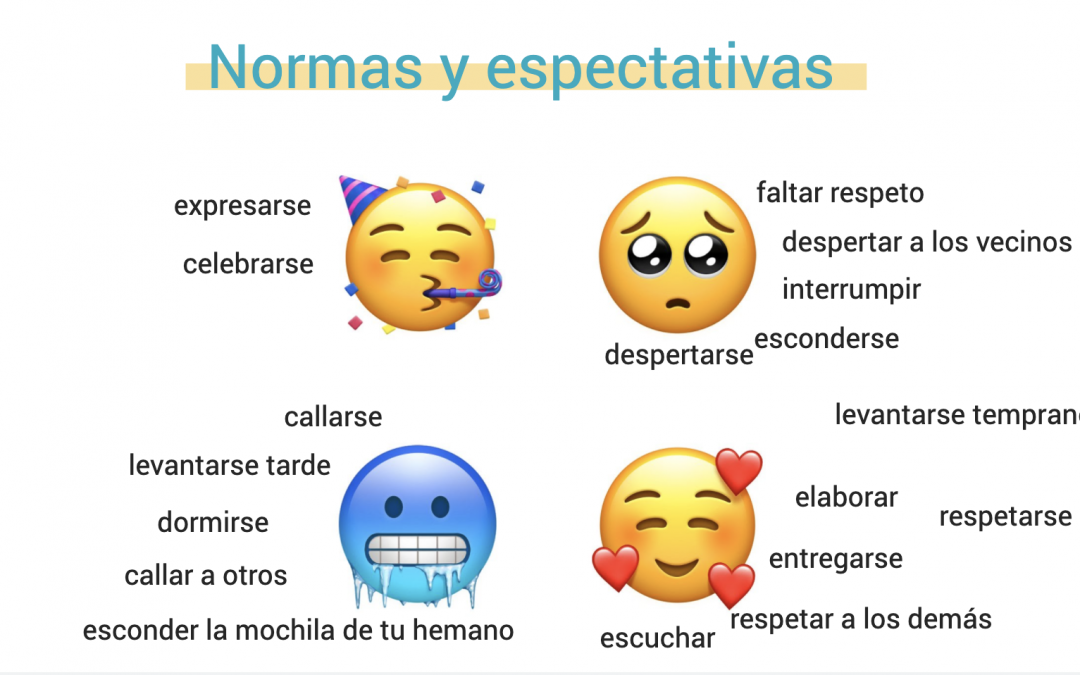
Nov 2, 2020
Mastering another language requires careful listening, consistent practice of conversational speaking, close reading of texts, and writing. While some of these fit seamlessly into remote/hybrid learning, Modern Languages faculty need to think creatively about class time and assignments.
“Where we’ve had the most success is leveraging universal tools like Google Slides, Schoology, and Jamboard,” said Mark Connolly, Spanish teacher and Upper School instructional technologist. “Instead of using, say, a prefab language app, teachers are making their own materials using those tools.”
In Connolly’s Spanish 4: Topics in Hispanic Culture and Literature class, students started the year with five different readings in Spanish from different Mesoamerican civilizations such as the Maya, Mexica, Triqui, and Teotihuacan. For their assignment, students are creating audio tours of their assigned civilizations in Google Slides, combining audio, photography and writing. They looked not only at the historical legacy but also at the ways these cultures combine to define Mexican identity today.

Oct 30, 2020
Milton athletes are working hard this fall season, practicing both remotely and on campus, despite the absence of regular team competition. As all fall teams began the season remotely, coaches had to think of creative ways to keep athletes moving and connected to each other.
Boys’ cross country coach Scott Bosworth said the team “approached this strange season with the same commitment and determination as in past seasons. We had active and engaging Zoom meetings where we talked about the challenges we face with the pandemic, motivational tools to get us through, and the need to stay together and be supportive of each other. We watched videos about Wilma Rudolph and Billy Mills, two athletes who overcame huge obstacles—physical, economic, racial, and substance abuse—to become Olympic gold medalists, and we had lively discussions afterward.”
“The soccer season has been great thus far in spite of the different forms it has been taking,” said Boys’ soccer coach Chris Kane. “We have a large and passionate group of soccer players and we used the remote learning period to build connections across students across the various levels of our program.”
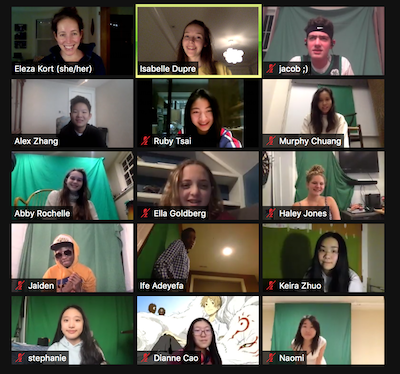
Oct 28, 2020
Milton’s performing arts faculty and students found creative solutions to bridge distances and time zones to offer a full slate of performances this fall, including the plays Macbeth, The Illustrated Bradbury, and this weekend’s Class IV play, All I Really Need to Know I Learned in Kindergarten.
Performing Arts Department faculty member Eleza Kort, who directed the Class IV play, said about one-third of the 15 cast members are international students, so meetings and rehearsals were scheduled to accommodate different time zones. Each student received a green screen and filmed themselves performing in front of it. Faculty member Shane Fuller edited the scenes together to look as if the actors were in the same place
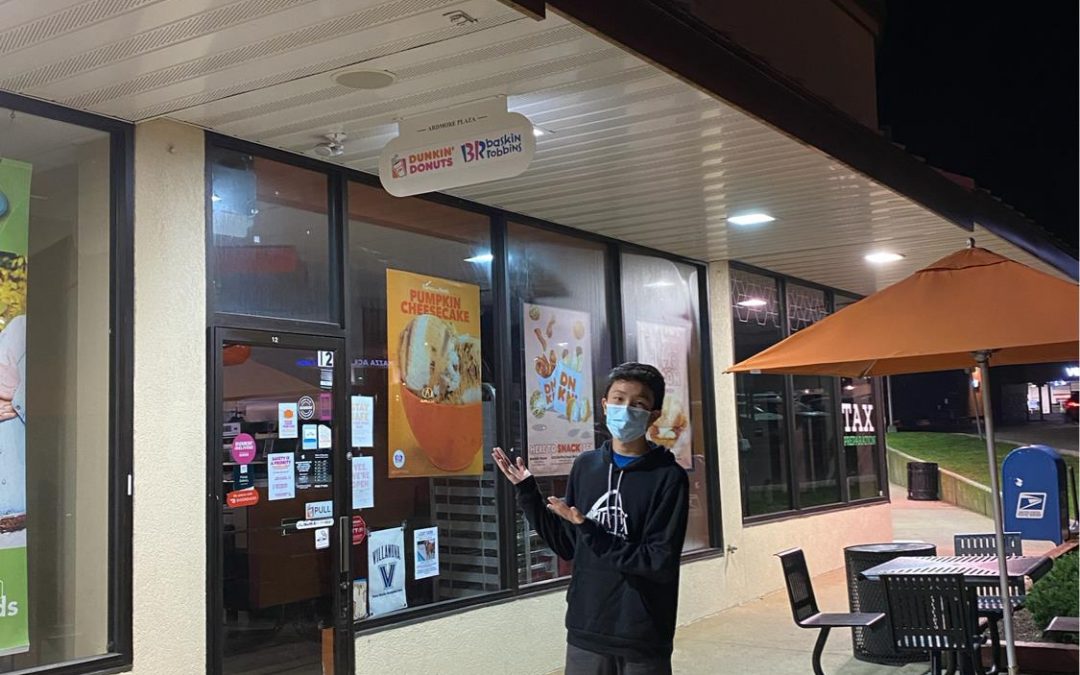
Oct 27, 2020
Maintaining a sense of dorm community is a focus of house heads and faculty as boarding students learn remotely during this phase of hybrid learning. In Wolcott House, Joshua Emmott, house head and history faculty member, runs a weekly scavenger hunt for the students, who are competing by advisory group for the “grand prize” in December. The advisory that has 100 percent participation wins custom dorm gear.
Each week, Emmott posts in CampusGroups a place or item that the student needs to find and photograph. One week was a photo in front of their local post office and another was a local coffee shop. Students post their photos, from places like Beijing, New York, Michigan, and Massachusetts.
Last weekend, the Emmott family hosted a cooking Zoom, featuring “the best cupcakes in the world.” Students received the same recipe so they could cook along with their Wolcott family.
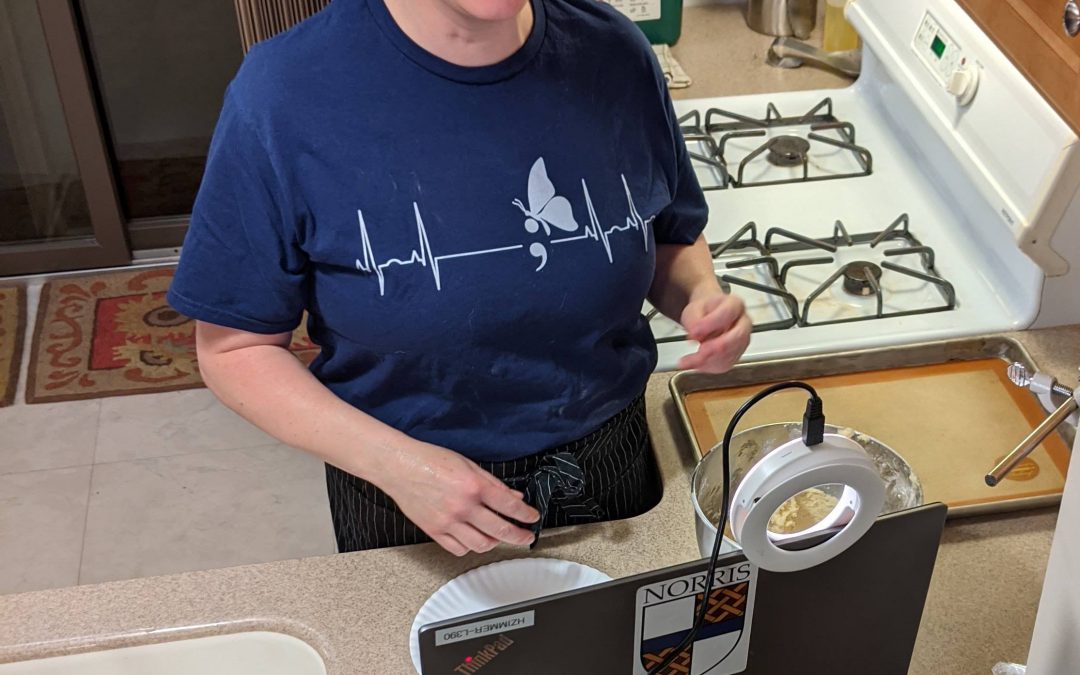
Oct 20, 2020
Comfort food is having a moment and science faculty member Heather Zimmer is showing students how to make it at home on a weekly cooking show. It’s part of the new Opt-In Program, where faculty host casual and fun Zoom sessions such as trivia nights and current event discussions.
The Opt-In Program started earlier in the semester after a few faculty members and student head monitors Eliza Dunn ’21 and Garvin McLaughlin ’21 thought about ways to keep the strong sense of community at Milton while in a remote/hybrid environment.
Zimmer said she and her husband, the head chef at 2nd Street Café in Cambridge, loved cooking with students when they lived in Norris House and this is a fun way to replicate that experience. On their first episode, they taught students to make mac and cheese from scratch.
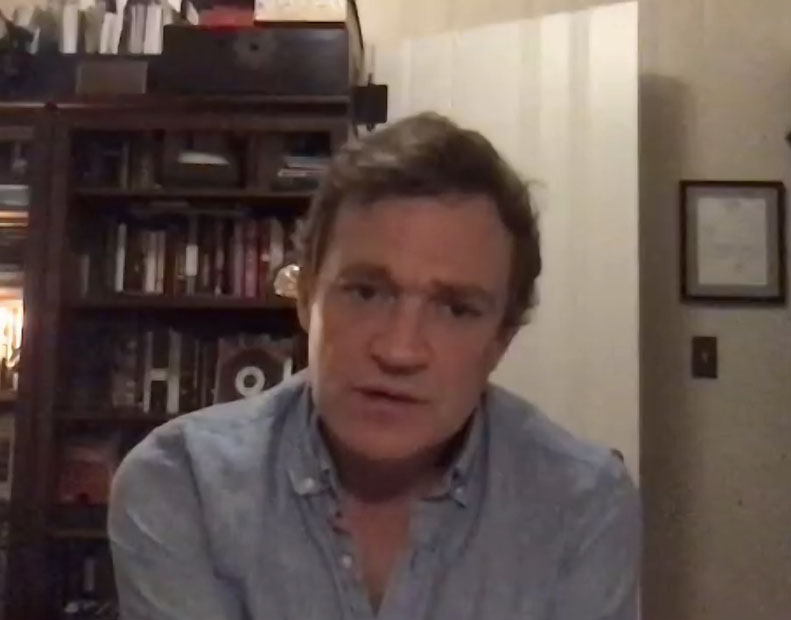
Oct 19, 2020
Award-winning writer and investigative journalist Patrick Radden Keefe ’94 spoke with students and alumni about his work, particularly his New York Times bestseller Say Nothing: A True Story of Murder and Memory in Northern Ireland. His talk was part of the Milton in the World webinar series.
Radden Keefe said he knew when he was a Milton student that he wanted to be a writer, but it took many years of rejection letters before he began writing professionally. Today, he is a staff writer at The New Yorker, writing long-form pieces that dive deep into a range of subjects, “from the hunt for the drug lord Chapo Guzman to the tragic personal history of the mass shooter Amy Bishop and the role that the Sackler family and their company Purdue Pharma played in sparking the opioid crisis.”
He said he looks for topics that have a “strong narrative spine. I want it to be a story about people, often people in conflict. It’s through that lens that I approach the bigger issues.”
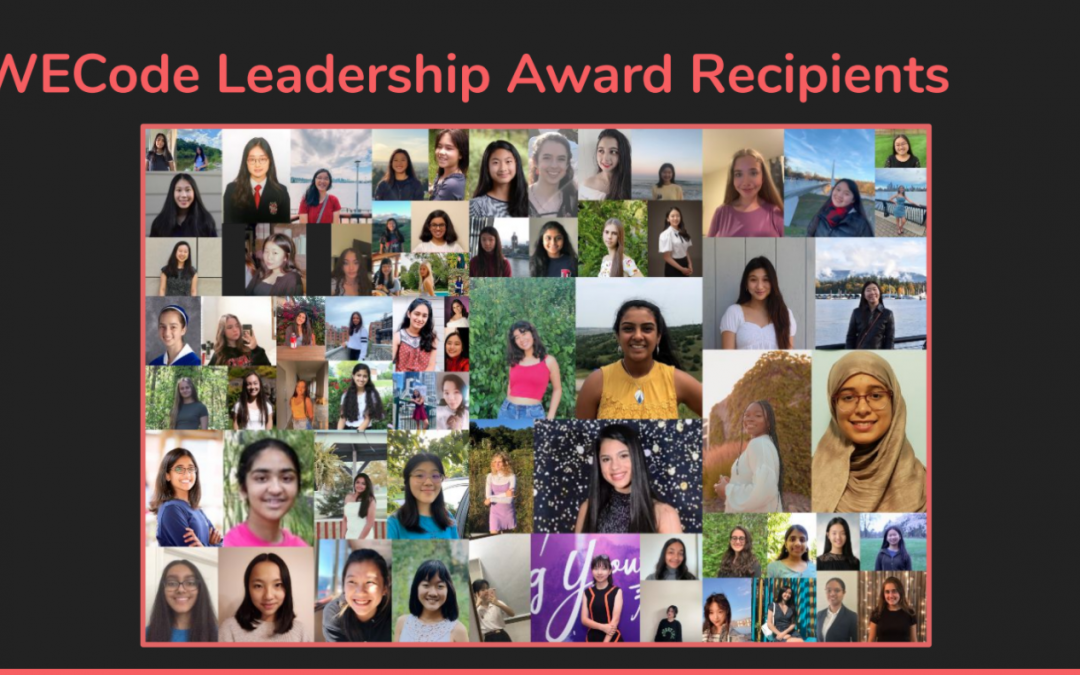
Oct 16, 2020
Ten Milton students participated in the Harvard WECode virtual conference last weekend. Caroline Wilson ’21 and Dina-Sara Custo ’22 served as Milton’s student ambassadors, and were two of the 21 (out of 80) student ambassadors who received WECode Leadership Awards. Prior to the event, they connected virtually with the Harvard WECode board, as well as other ambassadors from around the world to spread information and help organize.
At the conference, “We had the opportunity to listen to discussions surrounding STEM majors, internships, college admissions, college life, and other opportunities for women in technology,” said Wilson. “Even after the conference, we continued to connect with women in tech from the conference via channels on the platform Slack.”
Other Milton students attending included Samantha Buonato ’24, Sofia Reid ‘’23, Audrey Howley ’23, Ella Walsmith ’23, Emma Petherick ‘’23, Sara Kalra ’23, Karol Querido ’22, and Isabelle Fitzgibbon ’23.

Oct 14, 2020
When planning for this year’s biology classes for both remote and hybrid learners, faculty had to get creative and choose labs that worked at home, said biology teacher Michael Edgar. And while teaching hybrid/remote science is different, he said it’s about “letting go of expectations. When I’m with my students, I like to make the best of it and I have had some really nice moments with my classes.”
In Advanced Biology, a senior elective course, students are growing C-ferns, a regular lab for the class. But this year, students, whether learning remote or hybrid, are growing them at home with kits the biology department put together and mailed out.
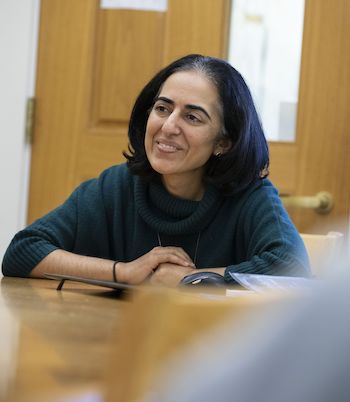
Oct 2, 2020
Milton’s teachers spent the summer months planning and training for a variety of possible academic scenarios during COVID-19. Professional development programs and other Upper School initiatives focused on student-teacher connections, technology, curriculum design, anti-racism, transparency, equity, and assessment. Although the increased summer work was prompted by the ongoing pandemic, much of the planning will serve Milton long after the pandemic ends. Indu Singh, dean of teaching and learning, provided an insight into some of the initiatives in this Q&A.
Sep 29, 2020
Milton Academy’s newly formed Diversity, Equity, and Inclusion (DEI) Commission began their work a few months ago. Please see below for their most recent announcement.
We are pleased to write to you on behalf of Milton Academy’s newly formed Diversity, Equity, and Inclusion (DEI) Commission. This past spring, students and alumni shared stories about racial injustices and inequities experienced at Milton. In response, current and past Milton employees, students, and alumni have demanded change through letters, phone conversations, and social media posts.
We hear you and, with humility, we take our place beside you. With gratitude for your honesty and in line with your passionate call to action, we reach out today to those of you who have spoken out, and to our entire community, to introduce ourselves and open the lines of communication. We seek to partner with you for the betterment of the school community we hold so dear.

Sep 23, 2020
The Community Engagement Shoparound (sign-up fair) starts today! It runs virtually through Friday via students’ Campus Groups accounts. Student co-heads Christian Westphal ‘21 and Nina Kathiresan ‘21 say interested students can take a look and sign up on the Google form if they would like to make a weekly commitment. “Visits” with the 20+ partners will all be via Zoom. Some volunteer opportunities include:
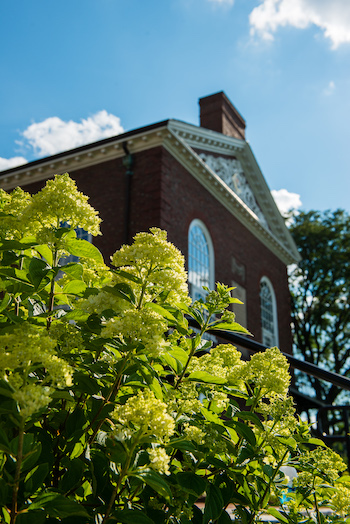
Sep 15, 2020
A virtual Convocation officially kicked off the 2020–2021 school year on Tuesday, with Milton students joining from all over the world to hear School leaders’ vision for the year.
The event, a longstanding Milton tradition, provided co-head monitors Eliza Dunn ’21 and Garvin McLaughlin ’21 their first opportunity to formally address the Upper School. Students also heard remarks from Head of School Todd Bland, Upper School Principal David Ball, Director of Spirituality and Community Development Suzanne DeBuhr, Dean of Students José Ruiz, and Director of Equity Vanessa Cohen Gibbons, and introductions from new members of the faculty.
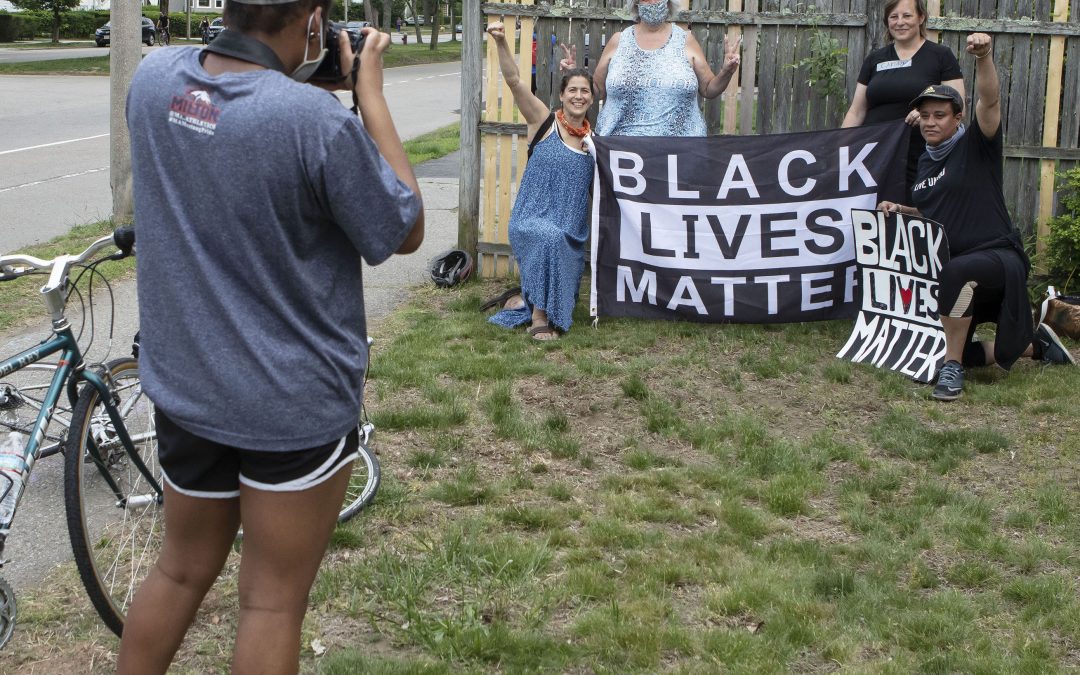
Sep 9, 2020
Although it was a summer unlike any other, many students found ways to do community and social justice work, both remotely and in person. Four students, all Community Engagement board leaders, participated in a virtual seven-week program run by the National Network of Schools in Partnership. Nina Kathiresan ’21, Kayla Mathieu ’21, Conner Hartman ’21, and Jaden Thompson ’23 worked on issues including homelessness, food insecurity with students from across the U.S, who were grouped into task forces. Hartman and Mathieu worked together on the same subcommittee called Demographics in Education.
“We produced the Rezoning Project, which aimed to inform, advocate, and share stories regarding the issues surrounding zoning inequality in public education,” said Hartman. “We were struck by the statistic that, on average, nonwhite districts received about $2,200 less per student than districts that were predominantly white, adding up to $23 billion less overall.”
Hartman said it was “extremely inspiring working with students from all over the country. Unlike Milton, a lot of the schools represented didn’t have community engagement programs. Hearing their experiences of inequality and powerful examples of civic engagement in communities hundreds of miles away from Milton really opened my eyes to the possibilities of what we can do with our program.”
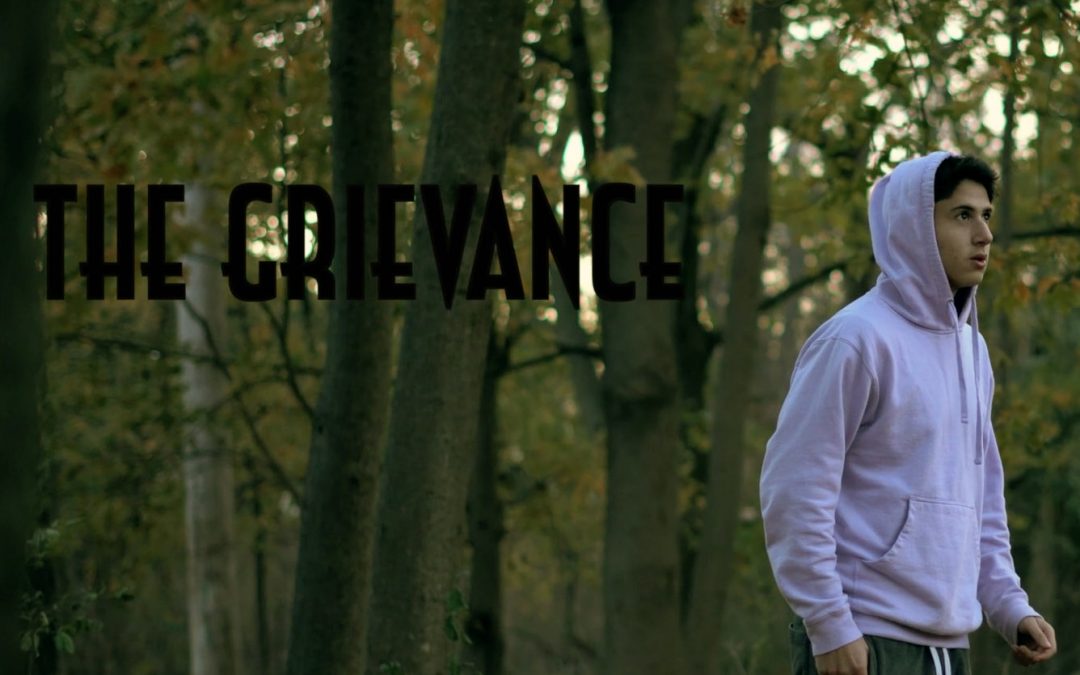
Jul 30, 2020
Two student films were accepted into the All American High School Film Festival in the drama category. Dash Evett ‘21 and Jace Fuller’s ‘21 film, The Grievance, featured Conner Hartman ‘21, Ben Simpson ‘21, and Charlie Volpe ‘20. Evett’s’s film, Guy, featured himself and his brother Spencer Evett ‘17. Normally, the films would be presented at a live festival in October in New York City, but this year it will be virtual.
The Grievance is a story about a man named Liam, played by Hartman, who gets trapped in a supernatural cemetery. A bullying incident from his past comes back to haunt him. Evett and Fuller did all the shooting, writing, music, and editing. “A lot of hours of shooting were outside in the cold, and sometimes in complete darkness,” said Evett. “It was my first time making something with a horror vibe, so it was cool to film in a dark cemetery.”
“One of my favorite challenges in filmmaking is giving the audience a proper scare; one that curdles the blood and raises the heartbeat,” said Fuller. “With a low budget of zero dollars, we both agreed we couldn’t show scary monsters or frightening circumstances. Instead, we had to make a psychological horror that could play with scares without showing anything.”
Jul 21, 2020
This letter was shared with our community on July 21.
Dear Milton Academy Community,
Over the past several weeks, many students and alumni have shared their personal encounters with racism and microaggressions at Milton through direct conversations, letters to administrators, and on social media, including on the @blackatmiltonacad Instagram account. We are listening and we are grateful for the courage and candor with which they have spoken about deeply painful experiences. As School leaders, we apologize for the ways that Milton’s actions and inactions have hurt students and other members of our community.
Black Lives Matter. Milton affirms the beliefs of the BLM movement as we work toward improving justice, diversity, equity, and inclusion within our community. We understand that it is not enough to simply say these words: We must live in this movement every day, be accountable for our actions, and report our progress.
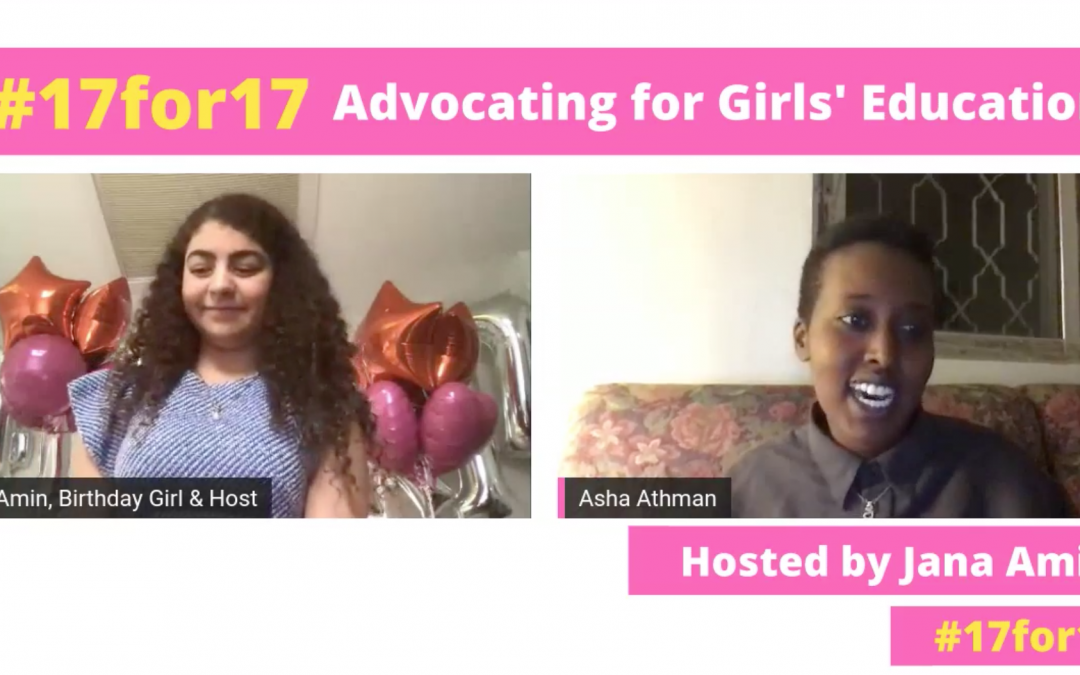
Jul 20, 2020
As a freshman, Jana Amin ’21 traveled on a Milton class trip to Jordan, where the students visited the Collateral Repair Project (CRP), a non-governmental organization that works with refugees on community-building, education, and trauma relief. She was so moved by their mission that she became an “e-learning partner” starting her sophomore year, video-chatting with students to help them learn conversational English. Her first two students were a Yemeni mother of five children and a Sudanese man.
Amin then became an English teacher for a class of 12 CRP students and she has encouraged other Milton students—especially after school switched to remote learning—to volunteer as virtual tutors and to help her with developing an English-language curriculum to use in the classes.

Jul 6, 2020
Ordinarily, the National Speech and Debate Association’s (NSDA) year-end tournament is a blockbuster, in-person event: Thousands of students and their coaches take over a host city for a week of end-to-end competition that determines the best student speakers and debaters in the country.
This year, due to the COVID-19 pandemic, the tournament was held virtually. Five thousand students from 1,300 schools competed from home for NSDA recognition. They included seven Milton students: Jana Amin ’21, Jack Burton ’22, Tim Colledge ’21, Miranda Paiz ’21, Nyla Sams ’20, Benjamin Simpson ’21, and Tyler Tjan ’22.
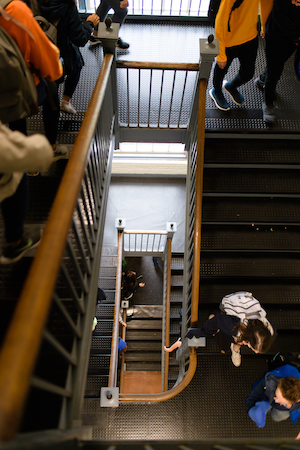
Jul 2, 2020
Milton Academy’s most ambitious campaign in School history, Dare: The Campaign for Milton, concluded on June 30. Dare made a commitment to the people of Milton, with student financial aid and faculty recruitment and retention named as top priorities, along with support for the Milton Fund and campus improvements.
“We launched Dare to put Milton on a firm financial foundation,” Head of School Todd Bland said. “When we began the campaign in 2015, our endowment was two to three times smaller than our peer schools. By growing our endowment, we are making a commitment to investing in our students and faculty today and to securing Milton’s future.”
Jun 25, 2020
This letter was shared with our alumni community on June 4th. A similar letter was also sent to current Upper School students prior to graduation.
Dear Alumni and Friends,
These past months have been unlike anything we have experienced together. Most recently, as a nation and within our Milton community, the tragic deaths of George Floyd, Ahmaud Arbery, Breonna Taylor, Tony McDade, and others have caused feelings of fear, outrage, and pain.
In a message to our students, faculty, and staff sent over the weekend, we unequivocally condemned racist violence, systemic injustice, and bigotry. Some of you took to social media to share stories about your own experiences at Milton and implored us to take action to fully live our ideals and mission. Thank you.
Please know this: We hear you and acknowledge that we are not immune to racial inequities and injustices. We can and must do better to foster inclusion and equity throughout our School. We are committed to doing this critical work, as complex and uncomfortable as it may be at times.
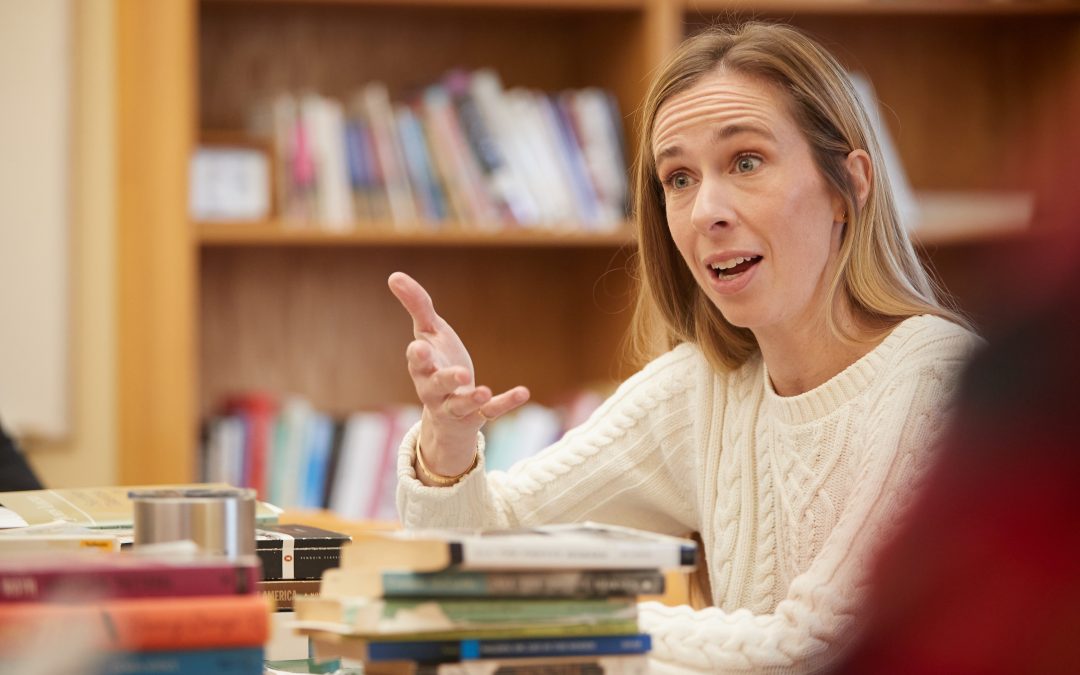
Jun 23, 2020
In English and history classes, learning stems from conversations, focusing on discussion with peers, not lectures from teachers. When Milton had to abruptly switch to remote learning in the spring, faculty had to figure out how to shift this experience from in-person to virtual. English Department Chair Nicole Colson said that while being in a space together is the ideal, she found the overall experience to be positive.
“When you build a real community in your classroom, it doesn’t go away when you shift over to remote learning,” said Colson. “Who they were in the classroom is who they were on Zoom.”
Colson said one trick she figured out after a few sessions was to have all the students unmute themselves for the entire class. Some were worried that background sounds from their home life would be disruptive, but Colson felt differently.
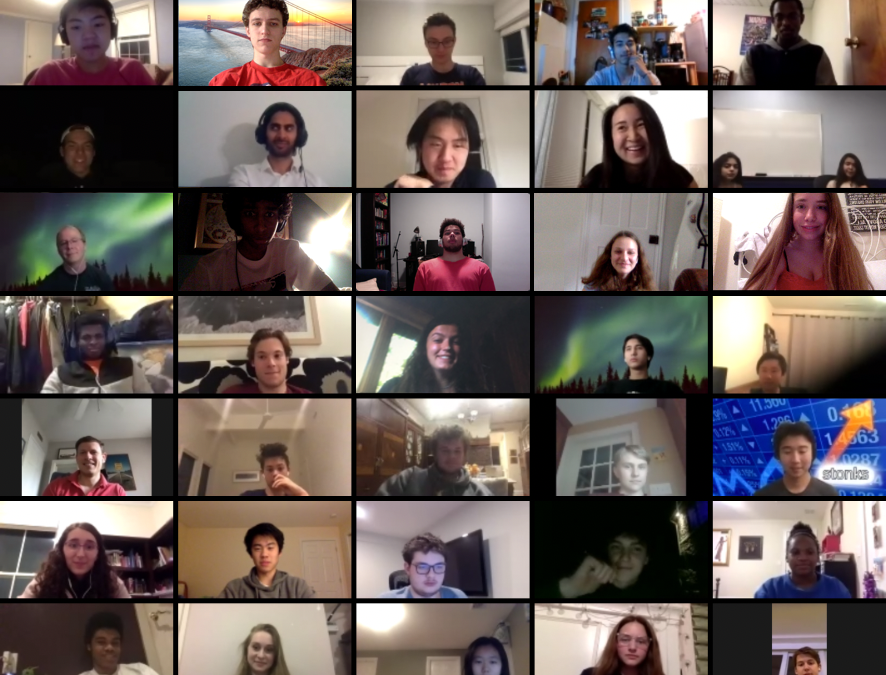
Jun 17, 2020
Eighteen teams ranging in size from one to seven students came together via Zoom to participate in MiltonHacks II, an intramural, student-led hackathon. The hackathon took place over 12 hours on May 24, during which students from different schools built projects that were judged by a panel of Milton alumni. Teams competed in six categories: Most Addictive Game, Most Educational, Most Technical, Most Scalable, Best UX/UI, Best Novice Hack, and Best Overall Hack.
Most Addictive Game went to Dina-Sara Custo ’22, who built a social-distancing simulator game where the player must avoid others to advance. “The more people that see the good message the game is promoting, the better the outcome will be,” said Custo.
Oliver Eielson ’21 won Best UX/UI for his app, Busy Beach. Eielsom described BusyBeach as an app that “helps people and governments limit contact and overcrowding at beaches and stop the spread of coronavirus.” He also won the Student Vote award, determined by popular vote at the end of the hackathon.
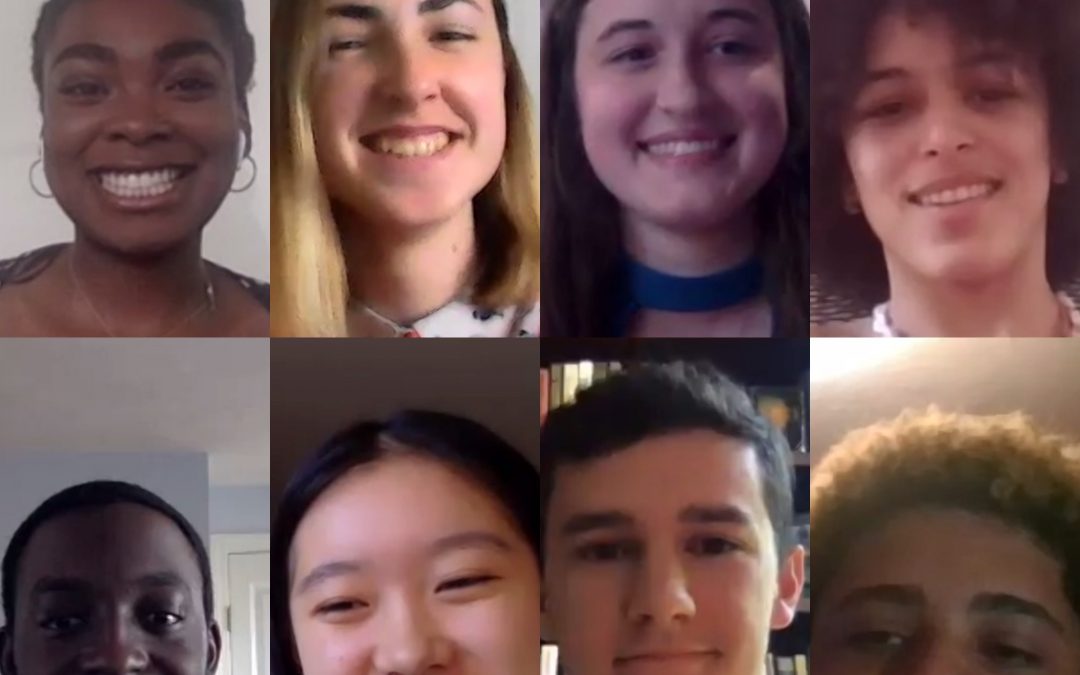
Jun 4, 2020
The School community gathered virtually this morning to celebrate seniors at the Prize Assembly. Awards recognized overall student achievement as well as achievement in the performing arts, visual arts, English, science, math, classics, computer science, modern languages, history, public speaking, student publications, and athletics.
The Head of School Award honors and thanks certain seniors for their demonstrated spirit of self-sacrifice, community concern, leadership, integrity, fairness, kindliness, and respect for others. Eight students were honored (in photo via zoom): Zaki Ellis M’hammedi Alaoui, Yaneris D’Anique Briggs, Jerry Ducasse, William Conners Livingston, Erinma Adaeze Onyewuchi, Allison Nicole Reilly, Jeanna Yuyang Shaw and Iryna Sobchyshyna.
Congratulations to all of the prize recipients, including a few junior students. Below is a complete list of awards:
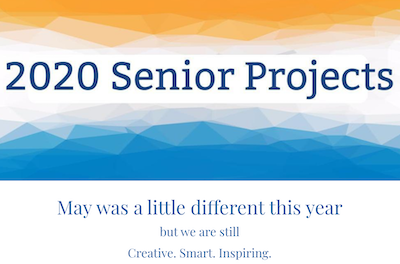
Jun 3, 2020
The senior project is a long-treasured tradition at Milton—an opportunity for Class I students to spend the month before Graduation focusing on one topic before presenting their work.
This year, the coronavirus pandemic changed many seniors’ plans for projects, but members of the Class of 2020 still found creative ways to use their time, either by pursuing their projects safely, altering their projects, staying in their regular classes, or dedicating their month to serving the Milton community. In lieu of the senior project fair that traditionally caps off the seniors’ May work, projects were compiled on a website.
Jun 1, 2020
Over this past weekend, the following letter was shared with students, faculty, and staff.
May 30, 2020
Dear Students, Staff, and Faculty,
We write today to decry racist violence, a manifestation of pervasive, systemic injustice, and to condemn bigotry in all its pernicious forms. In this moment of separation, when this pandemic renders us unable to gather in person to speak, share, and comfort one another together, our isolation makes it all the more difficult to bear witness to these tragedies—and the countless others they symbolize.
In the face of the injustices around us—including the killings of Ahmaud Arbery, Breonna Taylor and George Floyd, and the incident in New York City involving Christian Cooper—we must reaffirm Milton’s long-standing commitment to building an inclusive community, the strength of which rests on our shared appreciation for culture, diversity, and identity. This cannot be a passive commitment. We must each continue to find ways of taking action to live our values. We know this work is essential to fostering mutual respect, responsibility, and empathy in each of us, so we may carry these values out into the world.
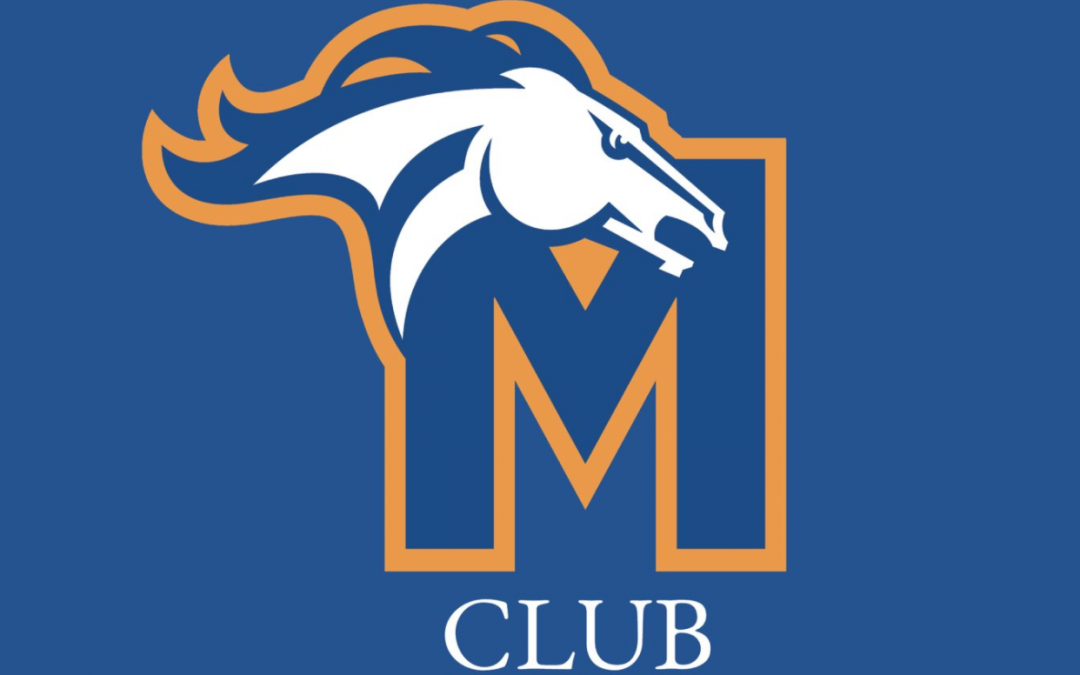
May 29, 2020
The Athletics Department celebrated Milton’s athletes virtually during the annual M-Club Gala on Wednesday. Class I students were presented awards for their outstanding performance in athletics.
Caroline Guden, an outstanding athlete in field hockey, ice hockey and lacrosse received the Priscilla Bailey Award. The award recognizes an athlete who “has been a most valuable asset to Milton Academy athletics and community, and who demonstrates exceptional individual skills and teamwork as well as sportsmanship.” Guden’s field hockey coach described her as “always giving 100 percent. She empowered her teammates. They could count on her to create a spark and make things happen.”
Football standout Kalel Mullings received the Robert Saltonstall Medal. Over Milton’s history, the Saltonstall has indicated “a distinguished record in all-around physical activity, with emphasis on leadership by example, conscientious training, good body mechanics, and observance of the code of the true sportsman.” In addition to his feats on the football field, Mullings excelled on the basketball court as a defender, and on the track and field team, where he was an impact member on medal-winning relay teams and running the 200M. His football coach said he was the most “kind, considerate, sincere, and friendly player who made it a point to know every player on the roster and made younger players feel important and valued.”
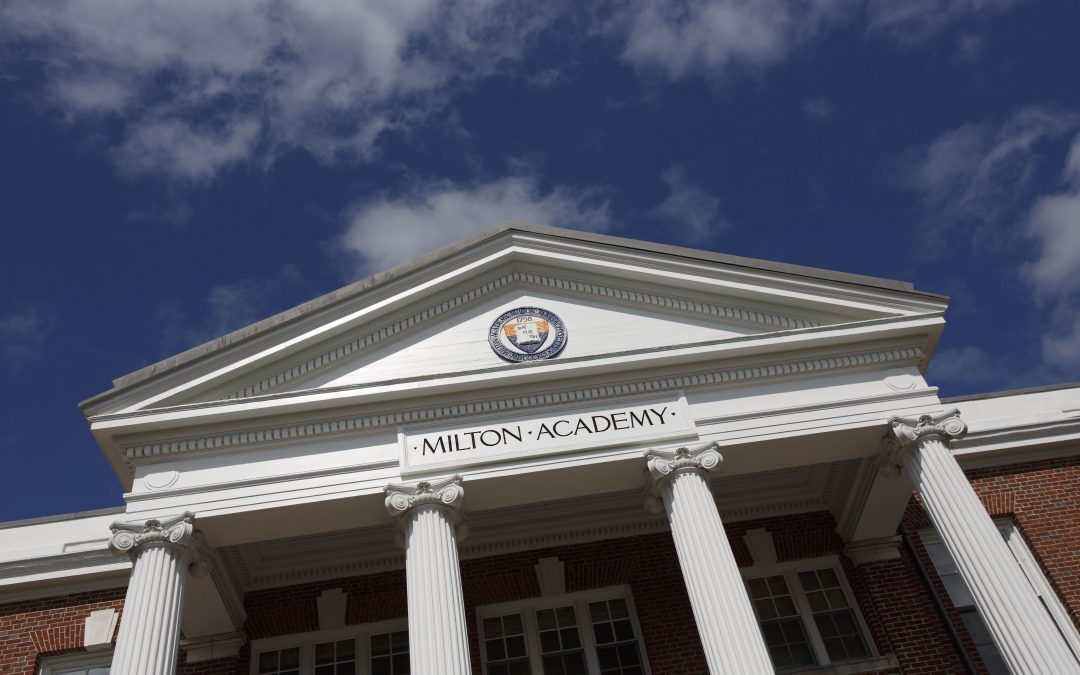
May 28, 2020
Nine students were selected for a Bisbee Prize by their teachers for outstanding research on their U.S. history papers. Although unable to gather in person for the spring tradition, the history department recognized students’ impressive work on topics ranging from the 1994 baseball strike to the repeal of the Chinese Exclusion Act.
The Bisbee Prize was established to honor Ethan Wyatt Bisbee, a former history faculty member who retired in 1993 after 40 years of teaching. The Prize was endowed in 2005 through a gift by John Warren, formerly of the history department, and his wife, Laura Warren ’78, former head of Robbins House.
Recipients of the 2020 Bisbee Prize are:
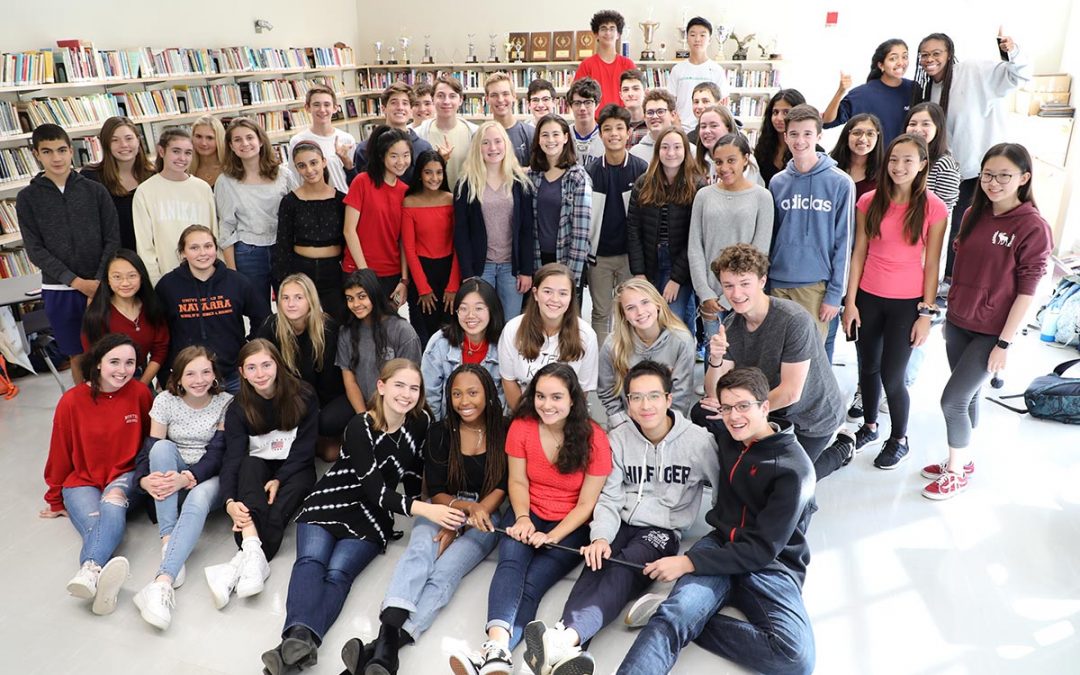
May 27, 2020
The Milton Speech and Debate teams continue to shine in competitions, which are taking place virtually. Over Memorial Day weekend, students participated in the rescheduled Massachusetts Speech and Debate League (MSDL) State Championship Tournament that featured 30 schools and nearly 500 students competing in live, online speech and debate events. Tyler Tjan ’22 was State Champion in Extemporaneous Speaking and Emily Hong ’21 was State Champion in Radio Broadcasting. Miranda Paiz ’21 and Caitlin Waugh ’20 earned second place in Duo Interpretation, Abby Buonato ’22 earned second place in Play Reading, and Nyla Sams ’20 earned third place in Informative Speaking.












































